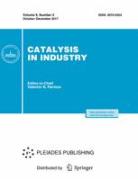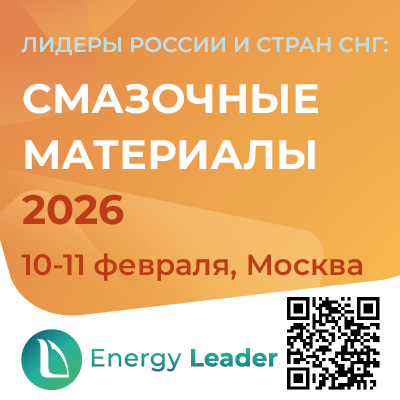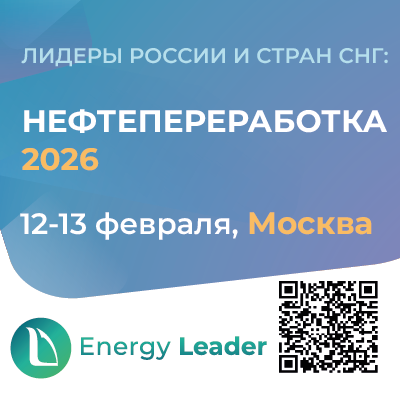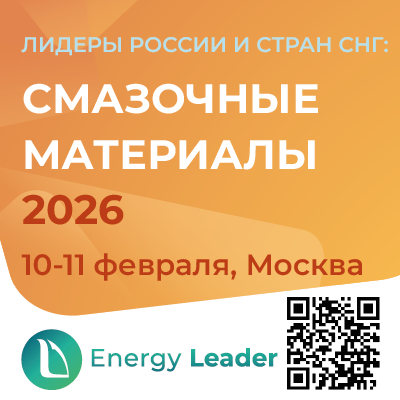Composition of emissions of sulfur and nitrogen oxides depending on the depth of hydrotreatment of FCC feedstock
https://doi.org/10.18412/1816-0387-2025-4-31-40
Abstract
The study of the effect of the composition of the feedstock cracking on its conversion, distribution of cracking products and composition of regeneration gases. Four types of feedstocks were studied: hydrocracking residue, hydrotreated vacuum gas oil, non-hydrotreated vacuum gas oil and mixed feedstock containing 20 wt. % of fuel oil and 80 wt. % of non-hydrotreated vacuum gas oil. Indole, quinoline and benzothiophene were additionally introduced into each type of feedstock, as well as benzothiophene and indole simultaneously. It was found that with an increase in the fractional composition of the feedstock, a decrease in conversion and the yield of cracking products (gasoline and light olefins) occurs. An increase in the concentration of sulfur and nitrogen oxides in the regeneration gases is also observed.
About the Authors
E. O. KobzarRussian Federation
T. V. Bobkova
Russian Federation
K. I. Dmitriev
Russian Federation
O. V. Potapenko
Russian Federation
References
1. Letzsch W. Fluid Catalytic cracking (FCC) in petroleum refining // Handbook of Petroleum Processing. 2015. V. 1. P. 261–316
2. Хаджиев С.Н., Капустин В.М., Максимов А.Л., Чернышева Е.А., Кадиев Х.М., Герзелиев И.М., Колесниченко Н.В. // Нефтепереработка и нефтехимия. 2014. № 9. С. 3–10.
3. Suganuma S., Katada N. // Fuel Process. Technol. 2020. V. 208. P. 106518. https://doi.org/10.1016/j.fuproc.2020.106518
4. Капустин В.М., Гуреев А.А. Технология переработки нефти. Часть 2. Деструктивные процессы. М.: КолосС, 2007. 334 с
5. Oloruntoba A., Zhang Y., Hsu C.S. // Energies. 2022. V. 15. № 6. P. 2061. https://doi.org/10.3390/en15062061
6. Jaimes L., Tonetto G.M., Ferreira M.L., de Lasa H. Int. J. Chem. Reac. Eng. 2008. V. 6. № 1. 69 р. https://doi.org/10.2202/1542-6580.1667
7. Nadeina K.A., Potapenko O.V., Kazakov M.O., Doronin V.P., Saiko A.V., Sorokina T.P., Kleimenov A.V., Klimov O.V., Noskov A.S. // Catalysis Today. 2021. V. 378. Р. 2–9. https://doi.org/10.1016/j.cattod.2021.04.014
8. Haruna A., Merican Z.M.A., Musa S.G., Abubakar S. // Fuel. 2022. V. 329. Р. 125370. https://doi.org/10.1016/j.fuel.2022.125370
9. Каминский Э.Ф., Хавкин В.А. Глубокая переработка нефти: технологический и экологический аспекты. М.: Техника, 2001. 384 с
10. Нефедов Б.К., Радченко Е.Д., Алиев Р.Р. Катализаторы процессов углубленной переработки нефти. М.: Химия, 1992. 265 с
11. Zhou J., Zhao J., Zhang J., Zhang T., Ye M., Liu, Z. // Chin. J. Catal. 2020. V. 41. № 7. P. 1048–1061. https://doi.org/10.1016/S1872-2067(20)63552-5
12. Zhang T., Lin Q., Xue Z., Munson R., Magneschi G. // Energy Procedia. 2017. V. 114. P. 5869–5873. https://doi.org/10.1016/j.egypro.2017.03.1724
13. Maholland M.K. // Petroleum Technology Quarterly. 2004. V. 9. № 3. P. 71–75.
14. Потапенко О.B., Бобкова Т.В., Дмитриев К.И., Кобзарь Е.О., Доронин В.П., Сорокина Т.П., Юртаева А.С., Ковеза, В.А. // Нефтехимия. 2024. Т. 64 № 1. С. 5–18. https://doi.org/10.31857/S0028242124010011
15. Bobkova T.V., Dmitriev K.I., Potapenko O.V., Doronin V.P., Sorokina T.P. // Kataliz v promyshlennosti. 2022. V. 22. № 4. Р. 58–65. https://doi.org/10.18412/1816-0387-2022-4-58-65
16. Потапенко О. В., Доронин В. П., Сорокина Т. П. // Нефтехимия. 2012. Т. 52. № 1. С. 60-65.
17. Plekhova K.S., Yurtaeva A.S., Gulyaeva T.I., Potapenko O.V., Sorokina T.P., Doronin V.P. // AIP Publishing. 2020. V. 2301. P. 040008. https://doi.org/10.1063/5.0032913
18. Бобкова Т.В., Доронин В.П., Потапенко О.В., Сорокина Т.П., Островский Н.М. // Катализ в промышленности. 2014. Т. 2. С. 40–45.
19. Bobkova T.V., Potapenko O.V., Doronin V.P., Sorokina T.P., Gulyaeva T.I. // AIP Publishing. 2018. V. 2007. № 1. Р. 020003. https://doi.org/10.1063/1.5051842
20. Bobkova T.V., Potapenko O.V., Doronin V.P., Sorokina T.P. // Fuel Process. Technol. 2018. V. 172. P. 172–178. https://doi.org/10.1016/j.fuproc.2017.12.020
21. Babich I.V., Seshan K., Lefferts L //Appl. Catal. B. 2005. Т. 59. № 3-4. P. 205–211. https://doi.org/10.1016/j.apcatb.2005.02.008
22. Bobkova T.V., Dmitriev K.I., Potapenko O.V., Doronin V.P., Sorokina T.P. // Catal. Ind. 2023. V. 15. № 2. P. 175–181. https://doi.org/10.1134/s207005042302002
23. Dmitriev K.I., Potapenko O.V., Bobkova T.V., Sorokina T.P., Doronin V.P. // AIP Conf. Proceed. 2019. V. 2143. № 1. P. 020018. https://doi.org/10.1063/1.5122917
Review
For citations:
Kobzar E.O., Bobkova T.V., Dmitriev K.I., Potapenko O.V. Composition of emissions of sulfur and nitrogen oxides depending on the depth of hydrotreatment of FCC feedstock. Kataliz v promyshlennosti. 2025;25(4):31-40. (In Russ.) https://doi.org/10.18412/1816-0387-2025-4-31-40



























